Canadians have a variety of slang alternatives to yes, including generic things such as yeah, uh-huh, yep, and even something like “OK”. Canadians are particularly fond of the phrase “Oh yah, no, for sure,” and also in general prefer “yah” to “yes” in many regions of the country.
Answering in the affirmative is one of if not the single most important thing we all need to do, linguistically, on a day to day basis.
Needing to say yes is constant, whether we’re agreeing with something, telling someone something is done, or any number of other scenarios—so it naturally spawns a lot of slang.
Let’s find out more.
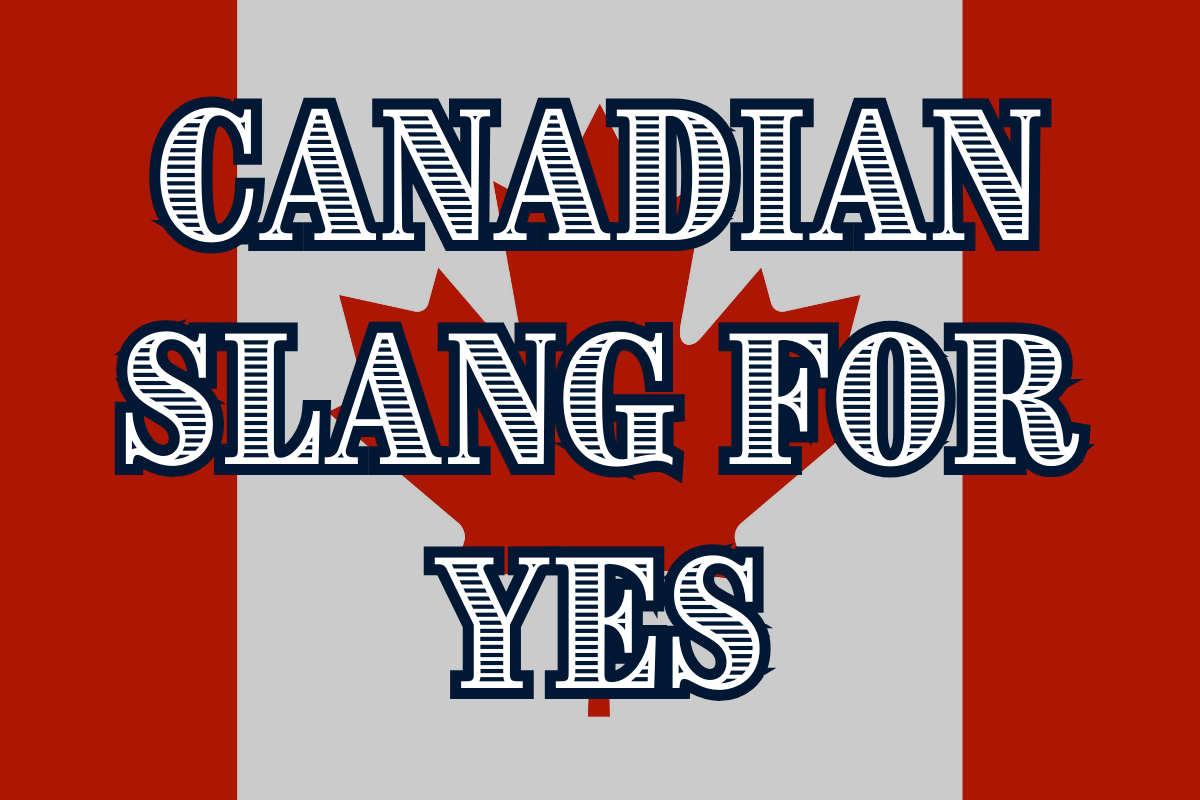
Canadian Slang For Yes
Bet
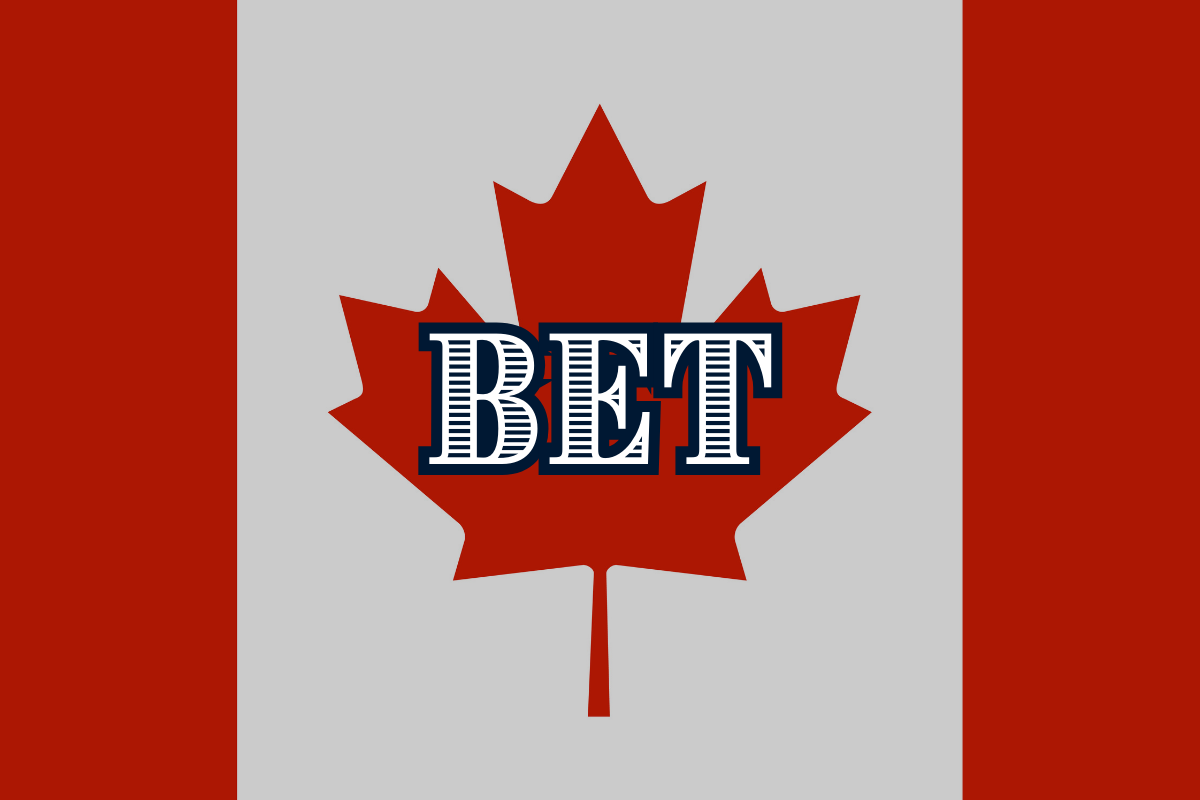
“Bet” is a modern slang term for agreeing, confirming, or accepting a statement or plan.
While it originated in African American Vernacular English (AAVE), it has spread widely and is now commonly used by young people across Canada.
In many cases, “bet” can be used in place of “yes” or “okay” in casual conversations.
This term is especially popular in online culture and among Gen Z, but it’s understood by many Canadians, particularly in urban areas.
It often carries a confident or even slightly competitive tone, as if accepting a challenge or affirming something with certainty.
Examples in sentences:
- “Are you coming to the hockey game tonight?” — “Bet.”
- “I’ll grab the poutine if you get the drinks.” — “Bet.”
- “If you win, I’ll buy you a double-double.” — “Bet, say less.”
- “You think you can beat me at shinny?” — “Bet.”
- “Let’s hit Tim’s before class.” — “Bet, I’m down.”
Darn Tootin
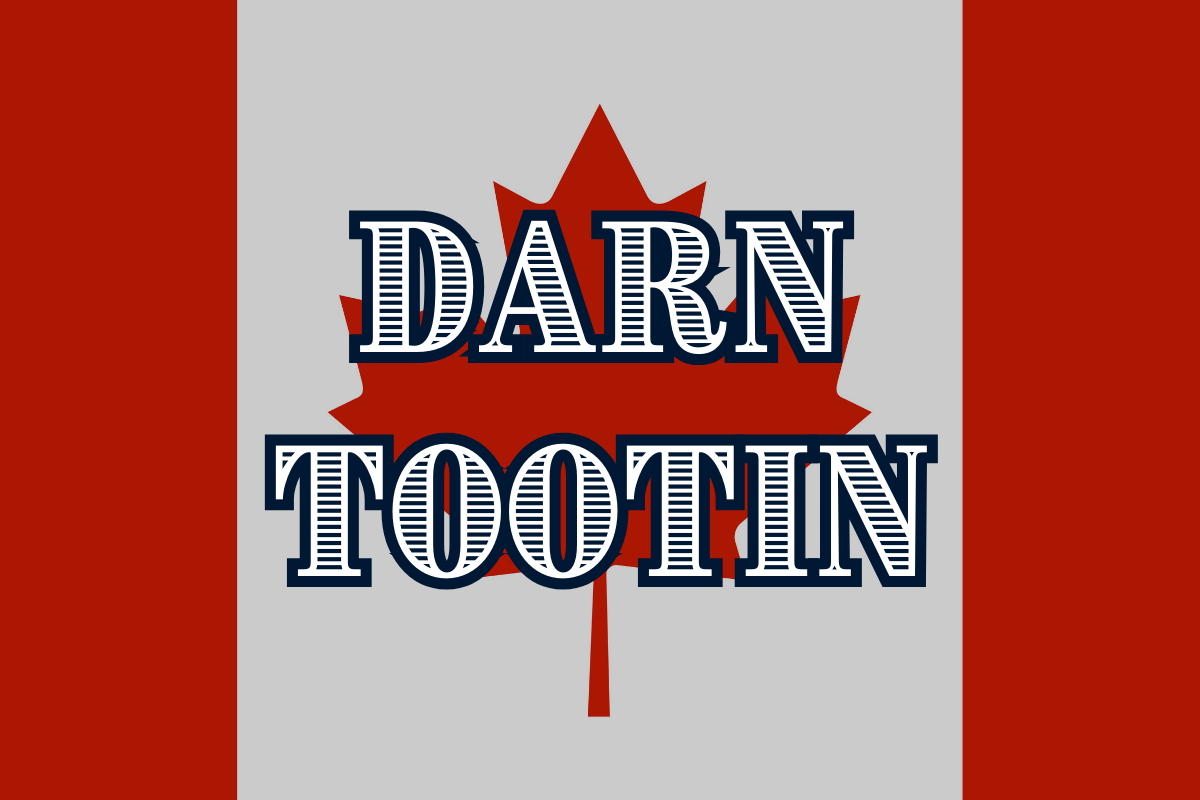
“Darn tootin” is a humorous and somewhat old-fashioned way of expressing strong agreement or confirmation.
While it originates from Southern U.S. English, it has become Canadian slang, particularly in rural areas and among older generations.
It carries a playful, exaggerated tone, making it great for adding emphasis in a lighthearted way.
Although not as common in modern slang, “darn tootin” is still understood across Canada and occasionally used for comedic effect.
It often appears in a friendly, enthusiastic context when someone is wholeheartedly agreeing with a statement.
Examples in sentences:
- “Darn tootin, that was the best poutine I’ve ever had.”
- “You’re darn tootin I’ll be at the hockey game this weekend.”
- “She asked if I wanted extra maple syrup, and I said ‘darn tootin!’”
- “Darn tootin, we should stop at Timmies before we hit the road.”
- “He said he’d help me move, and I told him ‘darn tootin you will.’”
For Sure
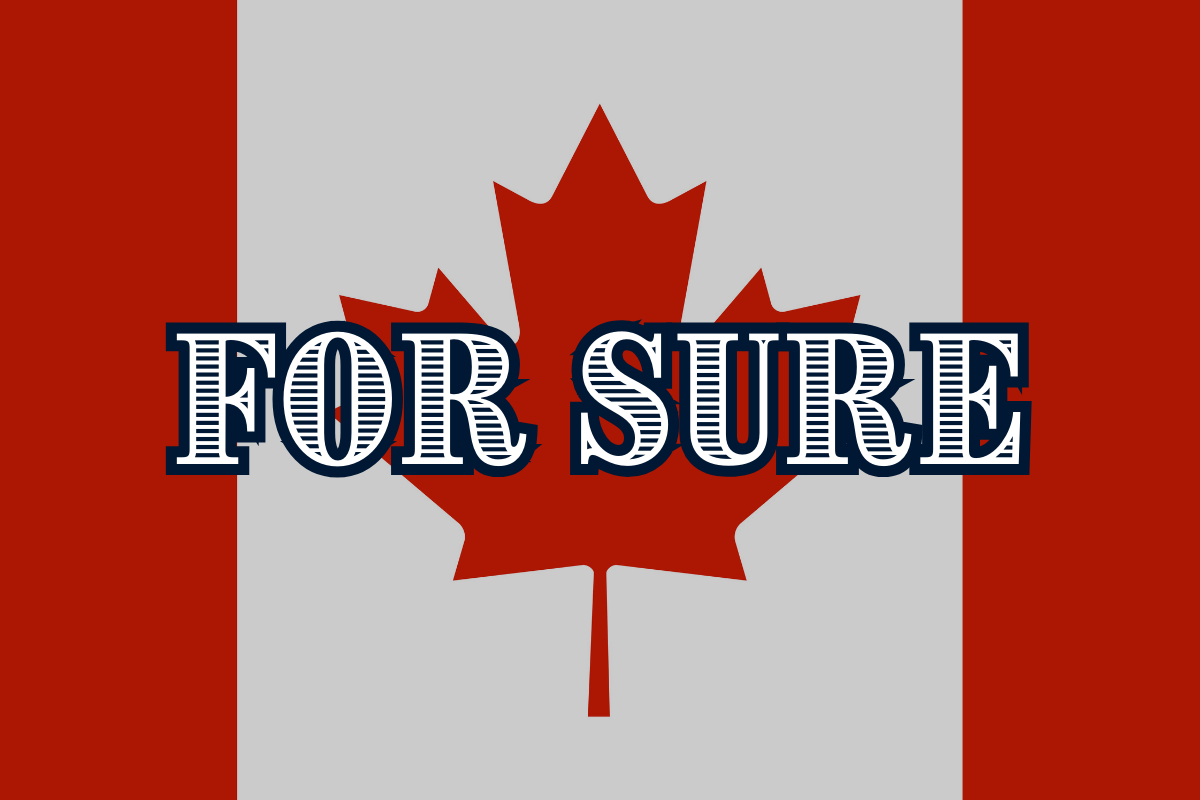
“For sure” is one of the most commonly used slang terms for “yes” in Canada.
It conveys certainty and enthusiasm, making it a go-to phrase for agreeing with someone or confirming something.
The phrase is widely used across different age groups and regions, and it often adds a friendly, laid-back tone to conversations.
It can also be combined with other phrases for emphasis, such as “Oh yeah, for sure” or “For sure, buddy.”
While it’s used in other English-speaking countries, it’s especially common in Canada and fits right in with the friendly and polite nature of Canadian speech.
Examples in sentences:
- “Are you coming to the party tonight?” — “For sure, it’s going to be a good time.”
- “That new coffee shop is amazing.” — “For sure, their maple lattes are the best.”
- “Do you think the Leafs have a chance this season?” — “For sure, they just need to stay consistent.”
- “We should go skiing this weekend.” — “For sure, let’s hit the slopes.”
- “Are you up for a road trip to Banff?” — “For sure, I’ve been wanting to go for ages.”
Oh Yah
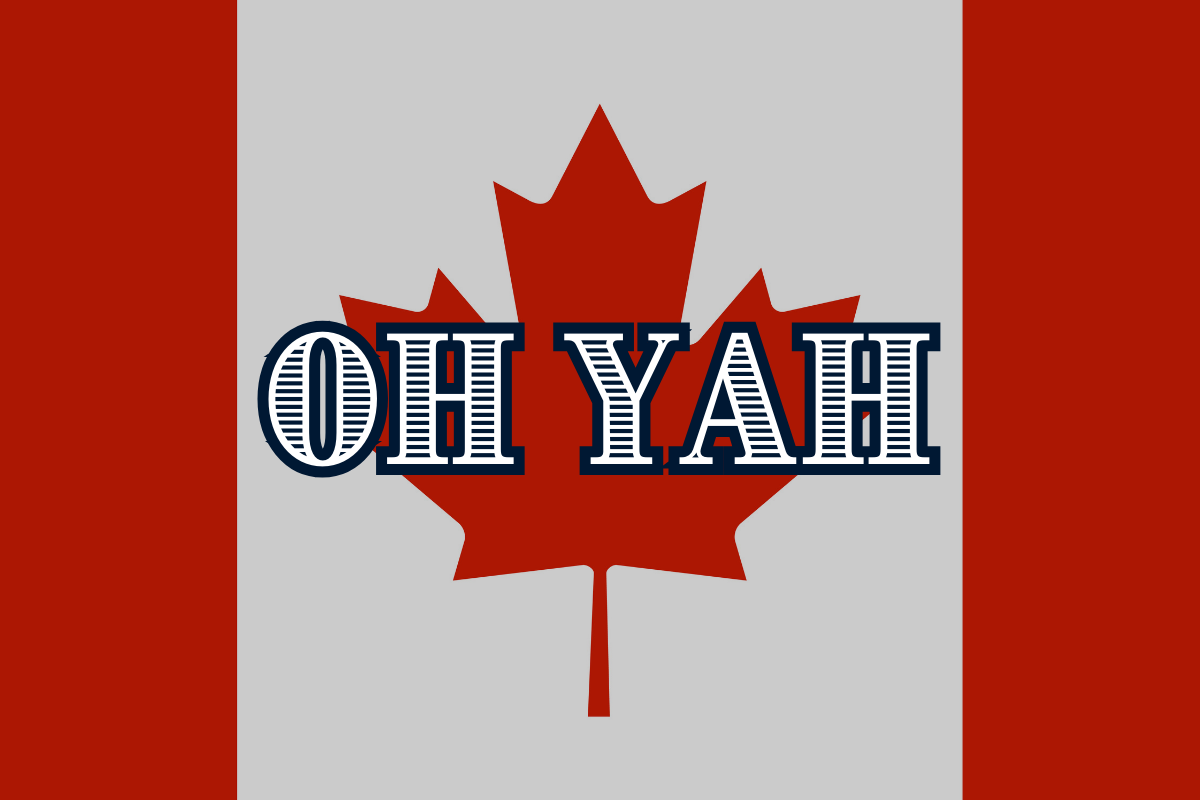
“Oh yah” is a very common and quintessentially Canadian way of saying “yes.”
It’s often used in a laid-back and friendly tone, capturing the essence of Canadian politeness and warmth.
The phrase can be used both as an affirmative response and as a way to show excitement or enthusiasm about something.
This phrase is particularly popular in Canada’s rural regions and among older generations, although it’s still widely used across the country today.
“Oh yah” is sometimes paired with other words for emphasis, like “Oh yah, for sure” or “Oh yah, definitely” to show even stronger affirmation.
Examples in sentences:
- “You’re coming to the cottage this weekend, right?” — “Oh yah, I wouldn’t miss it for the world!”
- “Did you hear about the snowstorm heading our way?” — “Oh yah, they said it’s going to be a big one.”
- “Are you ready to go?” — “Oh yah, I’m all packed and ready.”
- “Are you joining us for dinner tonight?” — “Oh yah, I’m starving!”
- “Did you catch the game last night?” — “Oh yah, I watched the whole thing!”
Right On
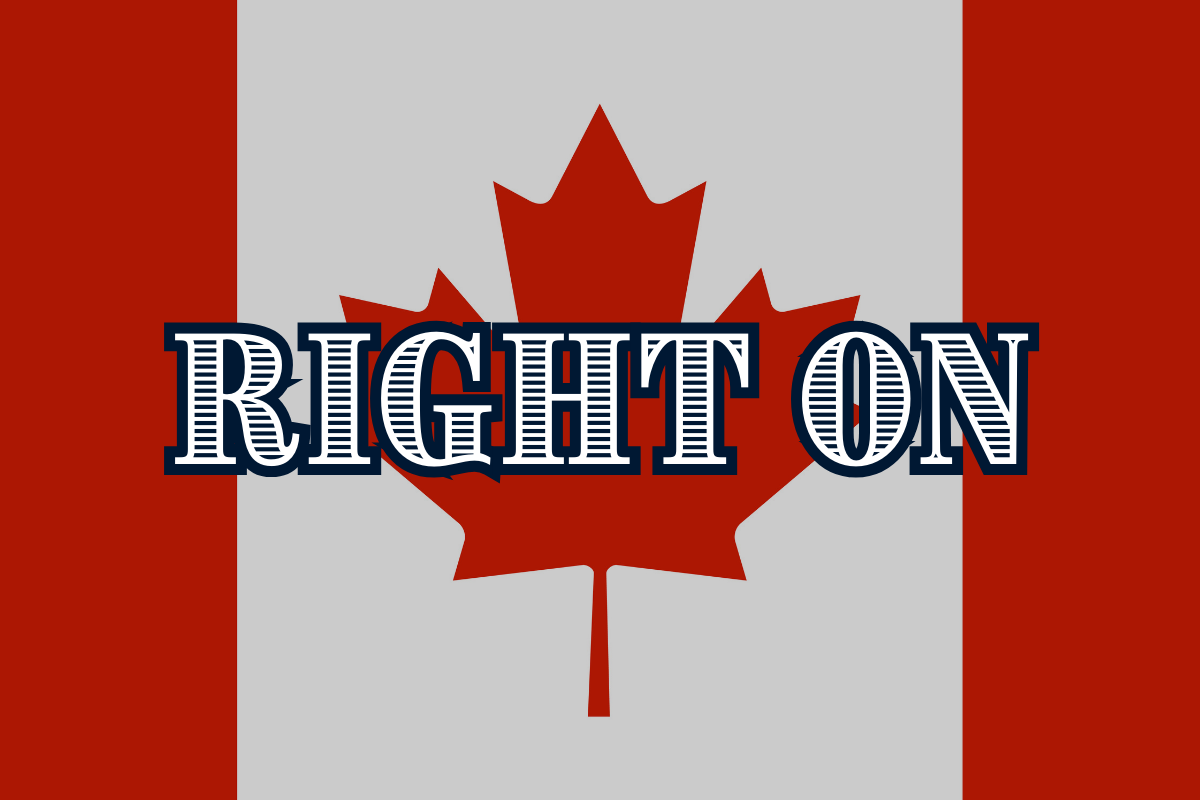
“Right on” is an informal Canadian slang expression used to show agreement, approval, or enthusiasm.
It’s often used after someone shares an idea or makes a statement that resonates with the speaker, much like saying “that’s great” or “I agree.”
The phrase carries a positive, upbeat tone, conveying excitement and encouragement.
This expression is frequently heard in casual conversations, particularly among younger generations, and can be used in a variety of situations, from social gatherings to discussions about achievements or plans.
Examples in sentences:
- “You got the job? Right on, that’s awesome!”
- “We’re meeting at 7 p.m. tonight.” — “Right on, I’ll be there!”
- “I just finished my final exam!” — “Right on, congrats!”
- “We should go on a road trip next month.” — “Right on, I’m in!”
- “That new restaurant downtown is amazing!” — “Right on, I’ll have to try it.”
Sure Thing
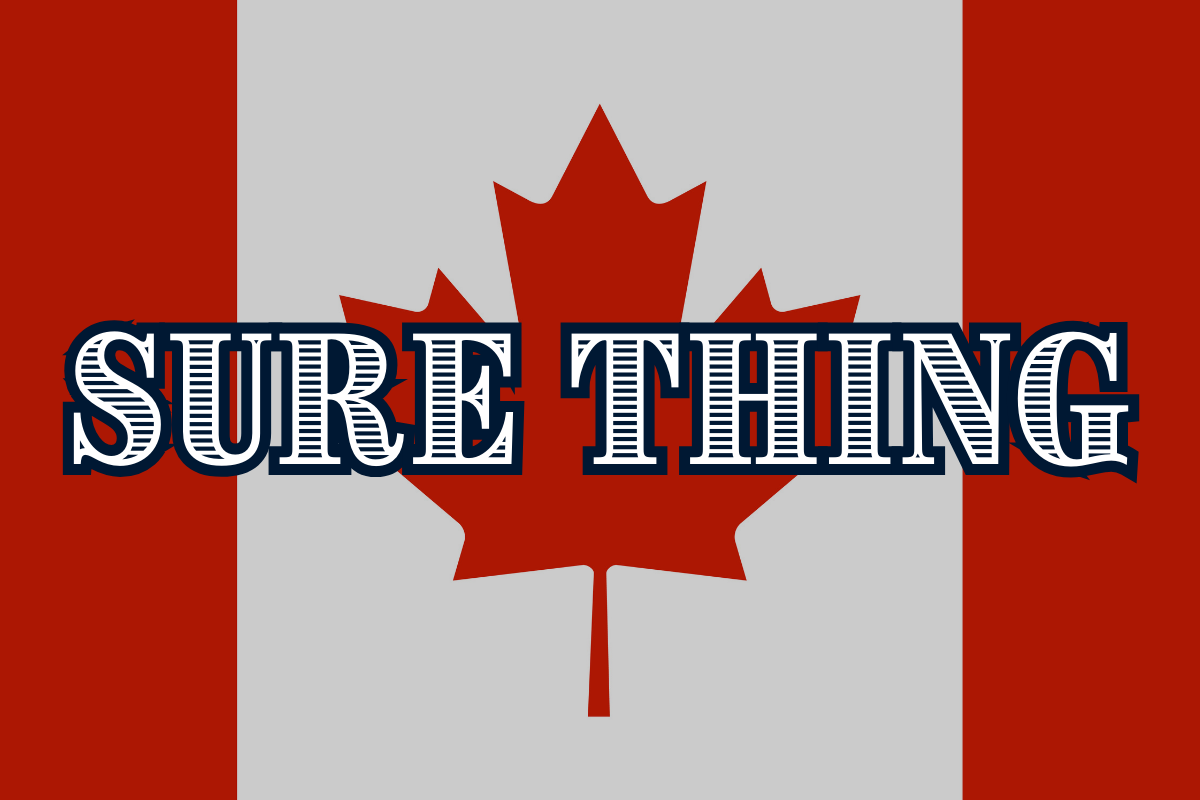
“Sure thing” is an informal way of saying “yes,” commonly used in Canada to indicate agreement or to confirm that something will happen.
It’s often used when someone is asked to do something or when confirming plans.
The phrase conveys a sense of certainty, often used in casual, friendly conversations.
While it may sound laid-back, “sure thing” can be used to convey enthusiasm or simply as a polite way of confirming an arrangement, whether it’s making plans, agreeing with someone’s statement, or affirming a request.
Examples in sentences:
- “Can you help me with this project?” — “Sure thing, I’ll get on it right away.”
- “Are you coming to the party tonight?” — “Sure thing, I’ll be there at 8!”
- “Can you pick up the groceries?” — “Sure thing, I’ll grab them on my way.”
- “Are we still meeting for lunch?” — “Sure thing, I’ll see you at noon.”
- “Can you send me the details?” — “Sure thing, I’ll email them to you.”
True
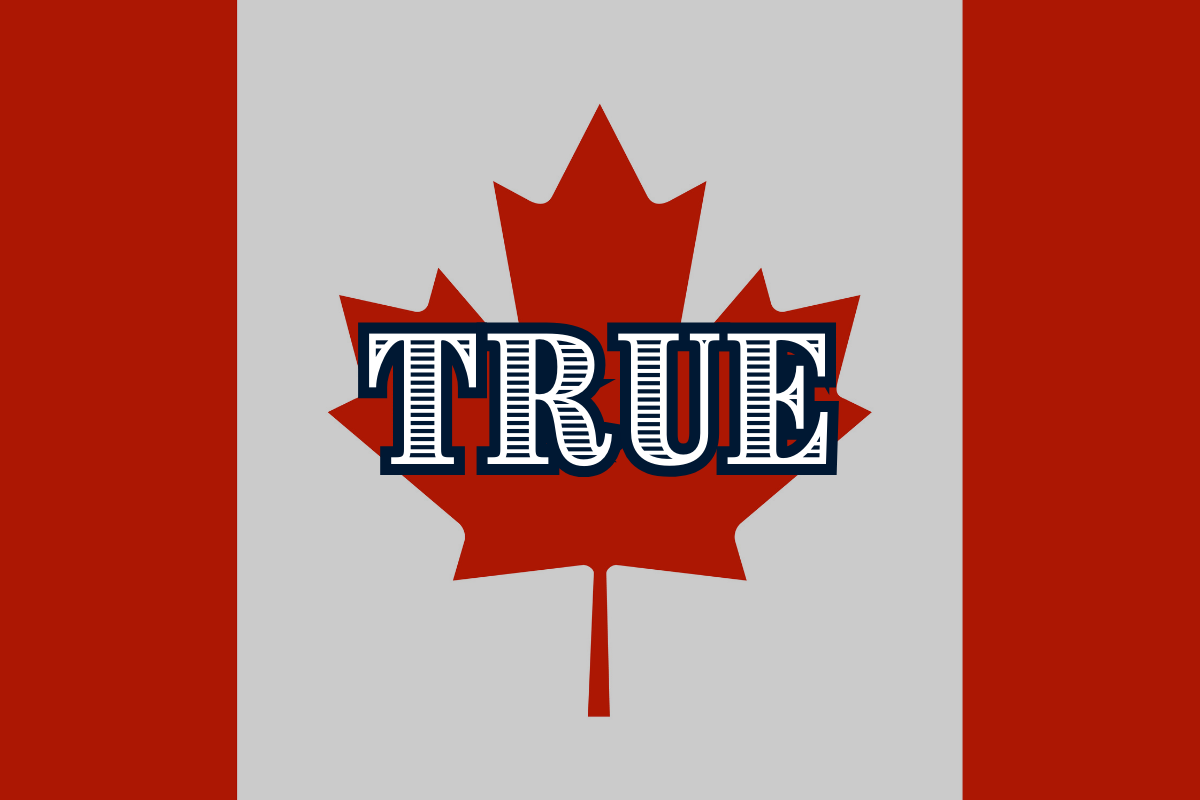
“True” is a casual Canadian slang term often used to affirm something, similar to saying “yes” or “I agree.”
It’s a quick, laid-back response that shows acknowledgment or acceptance.
While it’s not as formal as simply saying “yes,” it’s commonly used in conversations to confirm statements or express that you understand or agree with what someone has said.
Although “true” can be used in various contexts, it’s often heard in casual discussions, particularly when agreeing with a point someone has made.
It can also be used to indicate understanding, similar to “uh-huh” or “yep,” but in a more straightforward manner.
Examples in sentences:
- “That’s the best pizza in town!” — “True, it’s amazing!”
- “It’s freezing outside today.” — “True, I can barely feel my toes!”
- “I think that’s the best option.” — “True, I agree with that.”
- “She’s been working nonstop.” — “True, she’s been so dedicated.”
- “We’re definitely going to win this game.” — “True, we’ve got this in the bag!”
Yah
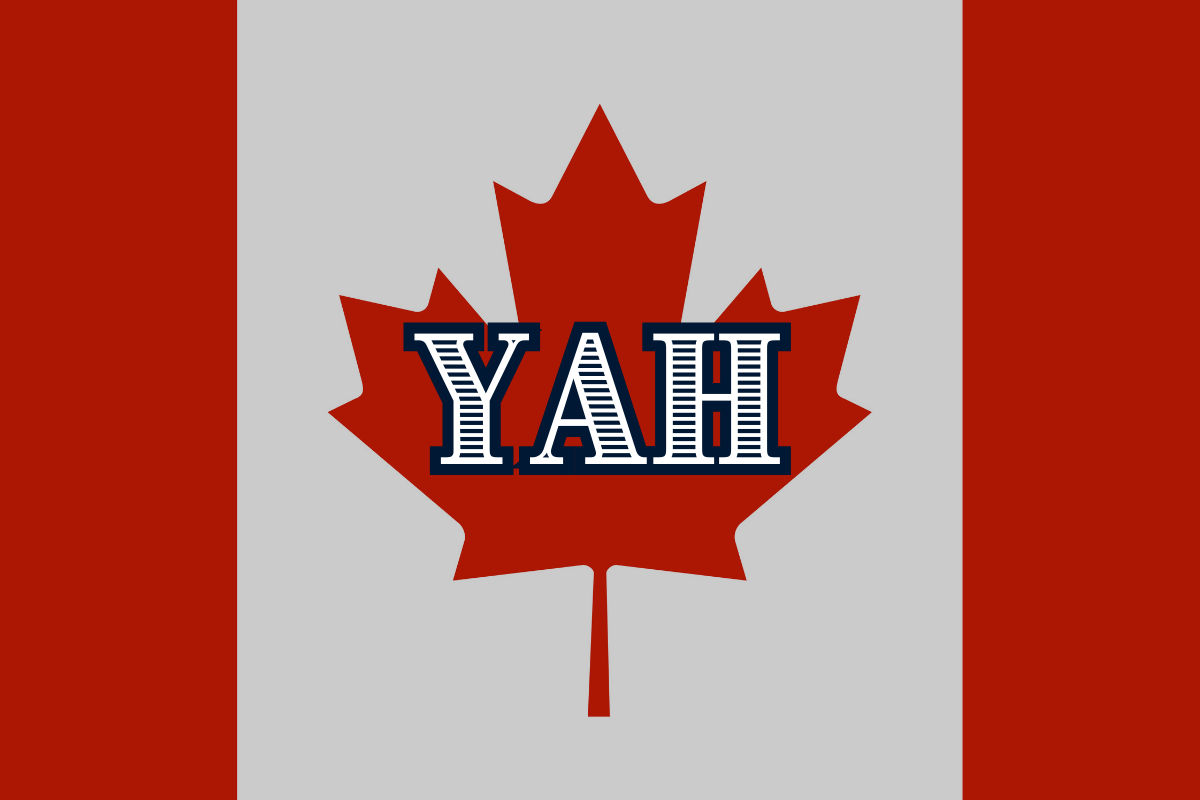
“Yah” is a common Canadian way to say “yes,” especially in informal conversations.
It’s a pronunciation variant that’s often used in place of the more formal “yes” in casual settings.
This term is widely used across Canada and is also common in some parts of the United States, like Minnesota and North Dakota.
While it’s just a simple variation in pronunciation, “yah” has become closely associated with Canadian friendliness and warmth.
It’s often used in both spoken and written communication to express agreement or affirmation in a laid-back, friendly way.
Examples in sentences:
- “Are you coming with us to the game?” — “Yah, I wouldn’t miss it!”
- “You got the job?” — “Yah, I did!”
- “Do you want some more cake?” — “Yah, sure!”
- “This is a great idea!” — “Yah, I totally agree.”
- “Can I borrow your car tomorrow?” — “Yah, no problem!”
Yeah, No, For Sure
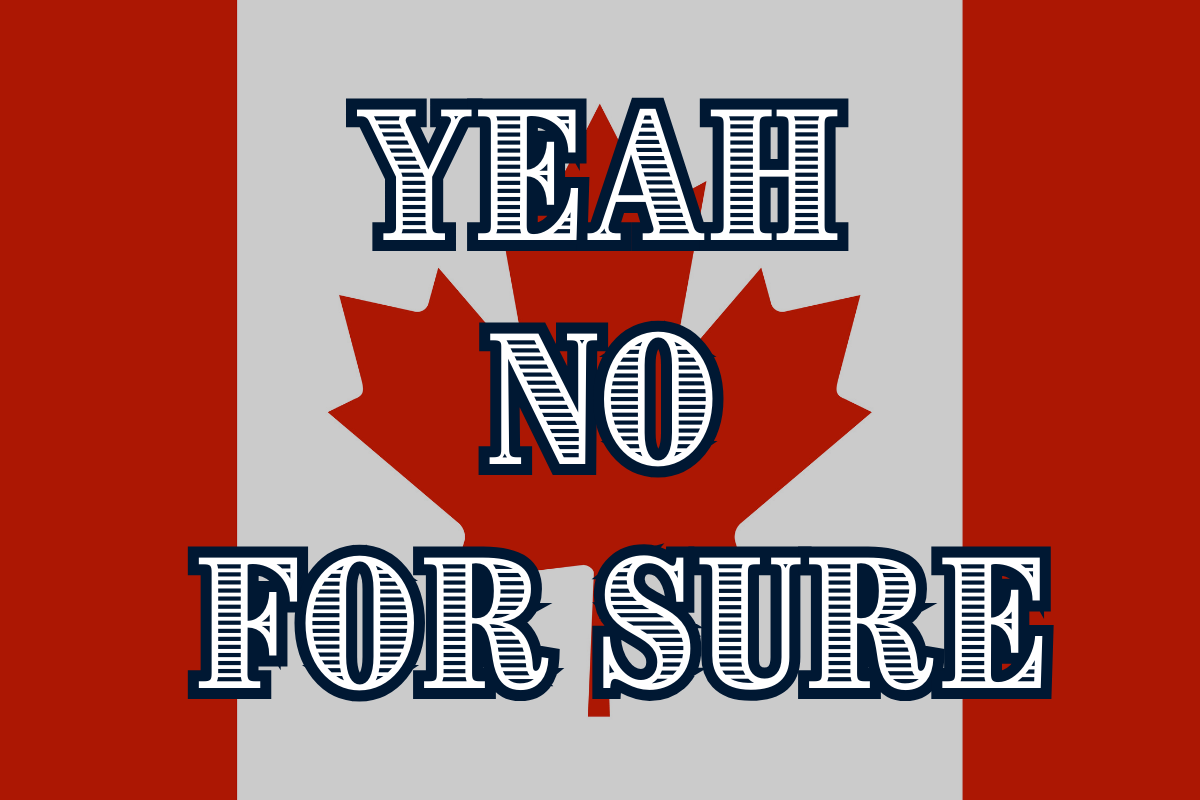
“Yeah, no, for sure” is a quintessentially Canadian way of saying “yes” or showing agreement.
This phrase is commonly used to emphasize confirmation, but it may sound a bit roundabout, as the “no” can seem contradictory.
Despite this, it’s used to reinforce the idea of “yes” and express strong assurance, often with a relaxed, friendly tone.
This expression is popular in informal conversations and may appear in both casual settings and when someone wants to be extra clear about agreeing with something.
It’s a bit longer and more emphatic than just saying “yes” or “yeah” and carries that unmistakably Canadian warmth.
Examples in sentences:
- “Are you coming to the party tonight?” — “Yeah, no, for sure, I wouldn’t miss it!”
- “That’s the best pizza place in town.” — “Yeah, no, for sure, their pizza is the best.”
- “We should meet up tomorrow.” — “Yeah, no, for sure, I’m free all day.”
- “This concert is going to be amazing!” — “Yeah, no, for sure, I can’t wait!”
- “You’ll definitely get the job.” — “Yeah, no, for sure, I’ve got this in the bag.”
You Bet
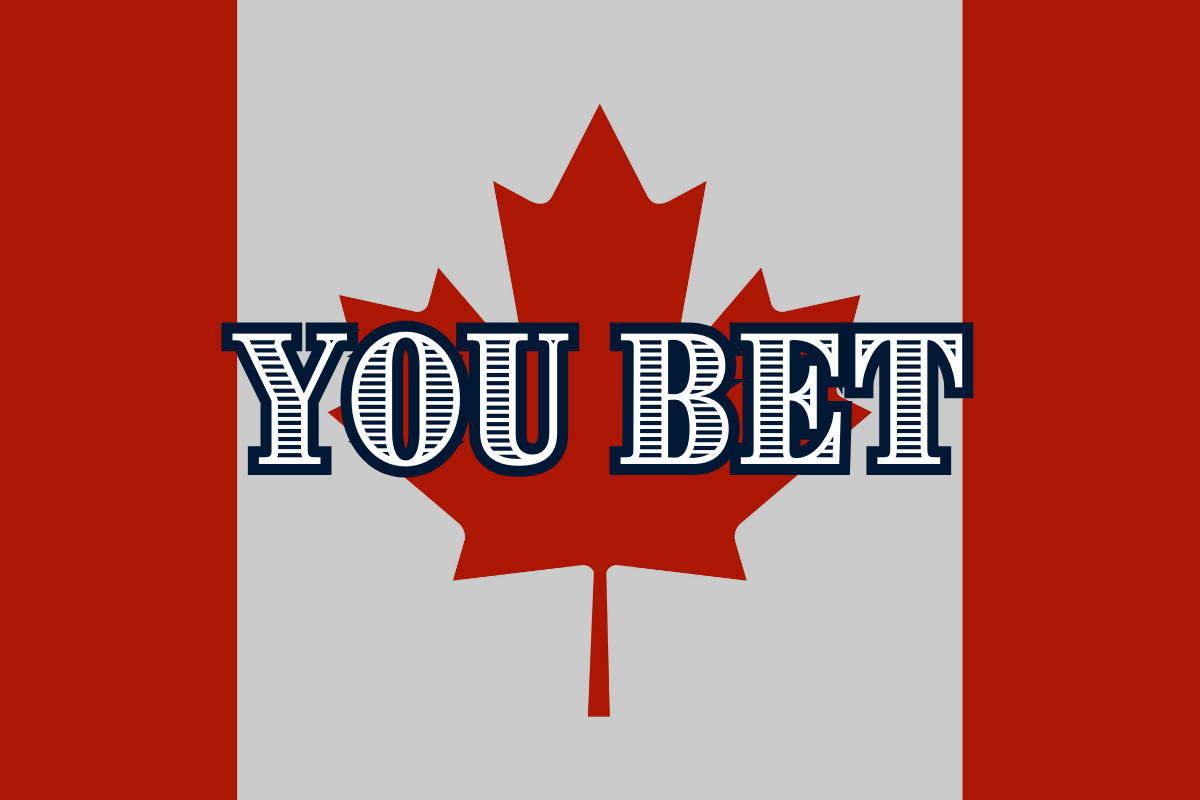
“You bet” is an enthusiastic Canadian way to say “yes,” showing a high level of agreement or certainty.
It’s commonly used when someone wants to emphasize their willingness or enthusiasm for something.
This phrase carries an informal, friendly tone, often used in casual conversations to express eagerness or confidence in the response.
The expression has become a trademark of Canadian politeness and is frequently used in both everyday chats and more spirited exchanges.
It’s a warm and friendly way to show you’re completely on board with what’s being asked or discussed.
Examples in sentences:
- “Are you joining us for dinner?” — “You bet, I wouldn’t miss it!”
- “Can you help me with this project?” — “You bet! I’m on it.”
- “Do you want to come to the beach this weekend?” — “You bet, sounds like a great time!”
- “Are you excited for the concert?” — “You bet, I’ve been waiting for this!”
- “Can you pick up the groceries?” — “You bet, I’ll do it right away.”

